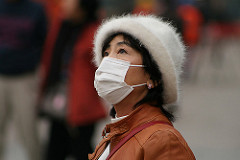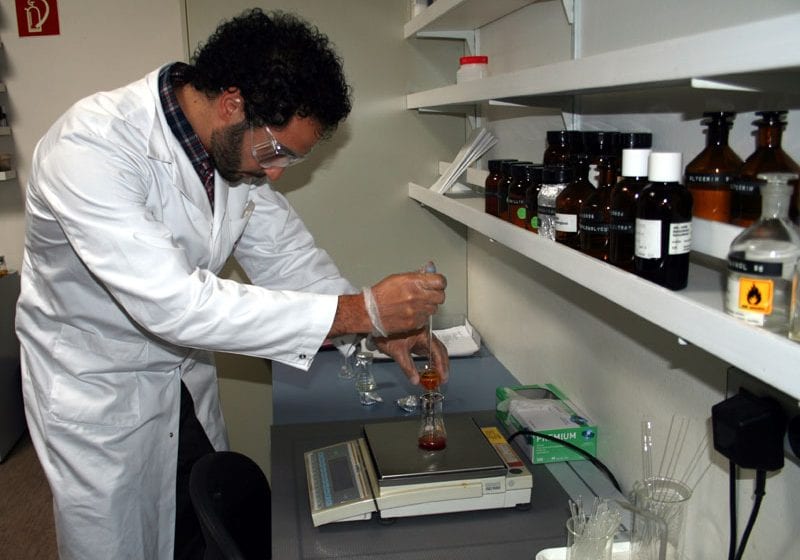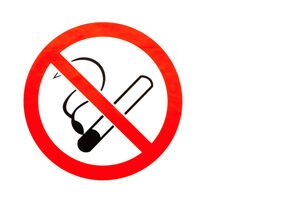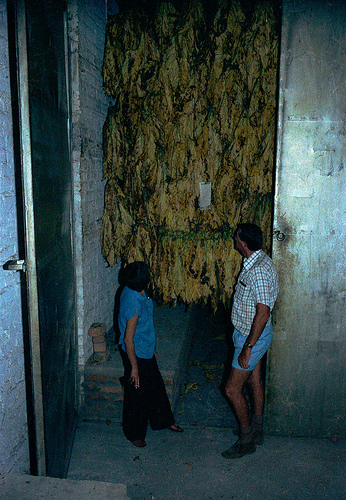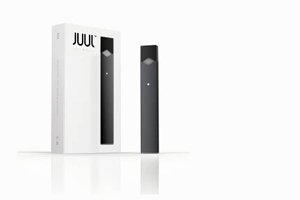A ban on smoking and vaping came into effect at the Václav Havel Airport, Prague, Czech Republic, yesterday, according to a Radio Prague story.
Smoking rooms in the facility’s transit areas have been closed.
However, 14 areas near entrances to the airport’s buildings have been reserved for smokers and, presumably, vapers.
It wasn’t clear from the story what had been the status of vaping previously – whether it had been generally allowed or confined to the smoking areas – but it is now the case that no distinction is made between smoking and vaping.
The airport’s operator said it expected the number of smoke-free airports to grow and wished to get on board with the healthy trend.
Category: People

Smoking ban takes off

Seven million deaths
Updated estimations from the World Health Organization suggest that seven million deaths a year are caused by people breathing ambient (outdoor) and household air pollution.
According to a WHO press note, new data shows that air pollution levels remain dangerously high in many parts of the world; so that nine out of 10 people breathe air containing high levels of pollutants.
“Air pollution threatens us all, but the poorest and most marginalized people bear the brunt of the burden,” says Dr. Tedros Adhanom Ghebreyesus, Director-General of WHO.
“It is unacceptable that over three billion people – most of them women and children – are still breathing deadly smoke every day from using polluting stoves and fuels in their homes. If we don’t take urgent action on air pollution, we will never come close to achieving sustainable development.”
WHO estimates that about seven million people die every year from exposure to fine particles in polluted air that penetrate deep into the lungs and cardiovascular system, causing diseases including stroke, heart disease, lung cancer, chronic obstructive pulmonary diseases and respiratory infections, including pneumonia.
WHO recognizes that air pollution is a critical risk factor for noncommunicable diseases, causing an estimated 24 percent of all adult deaths from heart disease, 25 percent from stroke, 43 percent from chronic obstructive pulmonary disease and 29 percent from lung cancer.
The press note is at: http://www.who.int/news-room/detail/02-05-2018-9-out-of-10-people-worldwide-breathe-polluted-air-but-more-countries-are-taking-action.
Preconceived flavors
South Korea’s Ministry of Health and Welfare has revealed plans to regulate the flavoring of cigarettes, according to a story in The Korea Bizwire.
The Ministry says it will be working alongside other ministries, such as the Ministry of Strategy and Finance and the Ministry of Food and Drug Safety, to pass three bills that would ban or limit flavored cigarettes.
According to the Korea Centers for Disease Control and Prevention, a study of cigarettes carried out by Professor Shin Hosang of Kongju National University in 2016 and 2017 had shown that they contained between two and 28 flavorings.
Meanwhile, professor Kim Huijin, of Yonsei University, reportedly said that 65 percent of 9,063 people between the ages of 13 to 39 who participated in an online survey consumed flavored cigarettes.
Those whose first cigarettes were flavored were said to be 1.4 times more likely to become regular smokers than those who started with cigarettes with no added flavors.
And more than 70 percent of smokers were said to have indicated that the flavor of their cigarettes of choice was an influential factor in trying them for the first time.
The story said that menthol, one of the ingredients used to produce a minty flavor, was known to numb the nerves and minimize the stimulation that users felt when inhaling smoke.
‘As smokers inhale other dangerous substances in cigarettes such as nicotine, the chances of becoming addicted and being exposed to cancer escalates,’ the story said. ‘Theobromine, an ingredient found in cocoa, expands the bronchus allowing nicotine to be absorbed in the lungs.’
Grime and punishment
The citizens of Nairobi, Kenya, are being threatened with dire consequences, including jail, if they discard cigarette butts and other waste materials carelessly, according to a story in The Nairobi News.
In a new directive announced by Nairobi County Environment CEC Larry Wambua, littering the streets will attract a fine of up to Sh5,000 or a six-months jail term.
Wambua said the move was aimed at enforcing waste management laws in the city.
He said that, in addition, people who failed to demonstrate where they had been disposing of their waste would also be ‘taken to task’.
“We will need to know if you are giving waste to the registered companies,” he said. “If you fail to show us, it will attract a fine of Sh100,000 or one year in jail,” he said.
Cantonal smoking ban
The canton of Ticino is due on Thursday to become the first in Switzerland to ban tobacco smoking in public places, according to a Swiss Radio International story.
Several other cantons are considering whether to follow suit, and a nation-wide ban has been mooted.
The citizens of Ticino decided to follow neighboring Italy’s lead and voted overwhelmingly in favor of banning smoking in bars restaurants and discos.
However, the local authorities announced this week that the cantonal parliament had decided to extend the ban to cover administrative buildings, schools, shopping centers, museums and public transport.
The full story is at: https://www.swissinfo.ch/eng/ticino-tightens-the-screws-on-smokers/5829766.
Regulations proposed
The Cabinet in South Africa has approved for public comment the Control of Tobacco Products and Electronic Delivery Systems Bill, according to a story in The Eyewitness News.
The Bill is intended to replace the 1993 Tobacco Control Act and bring South African legislation in line with the World Health Organization’s Framework Convention on Tobacco Control.
The Communications Minister, Nomvula Mokonyane, was quoted as saying the cabinet would decide whether or not to approve the draft bill after considering the public’s input.
“It addresses key areas relating to indoor public areas, display of tobacco products at point of sale, use of electronic devices and the introduction of plain packaging of tobacco products,” the minister said.
Sales picking up
Flue-cured tobacco deliveries to Zimbabwe’s auction floors have increased, partly because growers need to raise money for their children’s school fees, according to a story by Elita Chikwati for the Herald.
Boka Tobacco Floors’ operations manager Moses Bias, who confirmed that deliveries to the auction floors had firmed, said that this was a normal trend as schools opened.
“We used to receive an average of 1,700 bales per day during the first days, but now we are getting an average of 6,000 bales per day,” he said.
Bias said the season was going well and that there had not been any challenges with prices.
The Herald story said that growers had sold about 45 million kg of flue cured tobacco for about $125 million, an average price of $2.79 per kg.
As has become normal practice, no indication was given of how this average compares with that of last season.
However, with 70 million kg sold during the 2017 season, the average price stood at 2.76 per kg; and with 60 million kg sold during the 2016 season, the average price stood at US$2.82 per kg.
The highest price paid so far this season at auction was said to have ‘remained’ on US$4.99 per kg, while contract prices had gone beyond US$5 per kg.
The highest contract price paid during the first 30 days of the 2016 selling season was US$6.25 per kg, whereas the highest auction price was US$4.99 per kg.
The cost of success
JUUL Labs has said that it will take additional decisive action to build on its existing ‘youth prevention and education programs.
The Commissioner of the US Food and Drug Administration, Dr. Scott Gottlieb, said on April 24 that the agency was introducing several enforcement actions as part of a new Youth Tobacco Prevention Plan to stop young people from using and gaining access to JUUL and other electronic cigarettes.
In a note issued through PRNewswire on April 25, JUUL said it would support state and federal initiatives to raise the minimum age for buying tobacco products to 21+.
Such support would be funded by an investment of $30 million during the next three years that would be dedicated to ‘independent research, youth and parent education, and community engagement efforts’.
‘JUUL Labs has seen significant success in its efforts to enable adult smokers to transition from cigarettes and also recognizes that young people have become aware of and gained access to its products,’ the company said.
‘The company is committed to combatting underage use of its products and engaging with the US Food and Drug Administration (FDA), members of Congress, local and state officials and members of the public health community on this important issue.
‘JUUL Labs will work with Tom Miller, the Iowa Attorney General, and a group of public officials and tobacco control individuals he will assemble to continue strengthening existing initiatives and new efforts to keep JUUL out of the hands of young people.
‘In addition, Attorney General Miller and the same group will work with JUUL Labs to develop a transparent and effective framework for independent research focused on the scientific and societal implications of vapor products.’
“Our company’s mission is to eliminate cigarettes and help the more than one billion smokers worldwide switch to a better alternative,” said JUUL Labs CEO Kevin Burns.
“We are already seeing success in our efforts to enable adult smokers to transition away from cigarettes and believe our products have the potential over the long-term to contribute meaningfully to public health in the US and around the world.
“At the same time, we are committed to deterring young people, as well as adults who do not currently smoke, from using our products. We cannot be more emphatic on this point: No young person or non-nicotine user should ever try JUUL.”
The company said its support for state and federal efforts to raise the minimum age of purchase for JUUL and other vapor products to 21+ followed its announcement in August 2017 that it had raised the minimum age of purchase on its own e-commerce site to 21+, even though the legal age of purchase in many states remained at 18.
As part of its note, JUUL said that additional programs to be launched or expanded in 2018 included:- Investing in research and development to evaluate potential technologies to help prevent youth from gaining access to, and/or using JUUL;
- Building on the company’s efforts to enforce appropriate age verification at retail through its ‘secret shopper’ program;
- Calling on social media platforms to remove content showing, and/or encouraging, youth use of JUUL;
- Calling on online marketplaces to remove content that violates JUUL resale agreements by offering JUUL products for sale without age verification;
- Providing educational material at retail locations where JUUL products are sold and on the JUUL website to help increase parents’ awareness of JUUL and provide information on the negative impacts of nicotine on youth.

Passing the butt
The French government wants the tobacco industry to devise a way of disposing of cigarette butts in an environment-friendly manner, according to a story in The Local.
It is particularly concerned about the estimated 30 billion butts that are carelessly thrown away by smokers and that end up littering streets.
The government’s new anti-waste plan, which was announced on Monday, includes 50 measures to help clean up the streets, one of which involves persuading tobacco manufacturers to launch a recycling scheme and to participate financially in collection efforts.
The government is suggesting that tobacco companies increase the retail price of cigarettes by a few centimes a pack as part of an ‘eco-participation’ scheme.
The Local story said that such schemes already existed in France in respect of other products, but the examples it gave, furniture, appliances and electronic goods, did not include any other FMCGs.
But convincing tobacco companies might not be easy given that the government is raising cigarette taxes and, therefore, prices.
Eric Sensi-Minautier, head of communications at British American Tobacco Europe West, reportedly told Le Parisien that whereas his company understood the concern of the authorities, the problem arose from a lack of civic behavior on the part of some consumers.
“Under the pretext of the environment, this is actually a new tobacco tax,” he was quoted as saying. “Making consumers pay for the bad behavior of a few is not the answer.”
Chimirec, a company that specializes in the collection of hazardous waste and that is responsible for gathering butts from collection points around the Paris business district of La Defense, said that the butts were incinerated because the volumes were too low to make it profitable to create a sector dedicated to their recycling.
The full story is at: https://www.thelocal.fr/20180425/france-looks-to-tobacco-companies-for-help-in-cigarette-butt-clean-up-blitz.
Pitching up for litter
The average distance New Zealanders are prepared to walk to a bin to dispose of their rubbish is 8.4 meters; so littering rises dramatically beyond this distance, according to a story by Stuart Mitchell for Ethical Marketing News citing the results of research commissioned by Keep New Zealand Beautiful (KNZB).
Forty four percent of those surveyed littered within five meters of their nearest bin.
But the research revealed that ninety three percent of people think it is important for New Zealand to maintain its clean, green image.
KNZB recently launched an anti-litter campaign after its volunteers, during one week-long clean-up, collected enough rubbish to cover 120 rugby fields up to half a meter in depth.
The KNZB research showed the top items littered in public places by New Zealanders were cigarette butts, which comprised 78 percent of litter, followed by takeaway packaging, which comprised five percent. It was not stated on which basis the litter was measured – whether by number of pieces, volume or weight.
KNZB CEO Heather Saunderson was quoted as saying that the next stage of the campaign would involve its partnering with Stats NZ, the Ministry for the Environment and the Department of Conservation, to launch a Tier 1 National Litter Audit that would physically inspect litter in areas such as motorways, rest stops, residential streets, beaches, rural and industrial locations.


